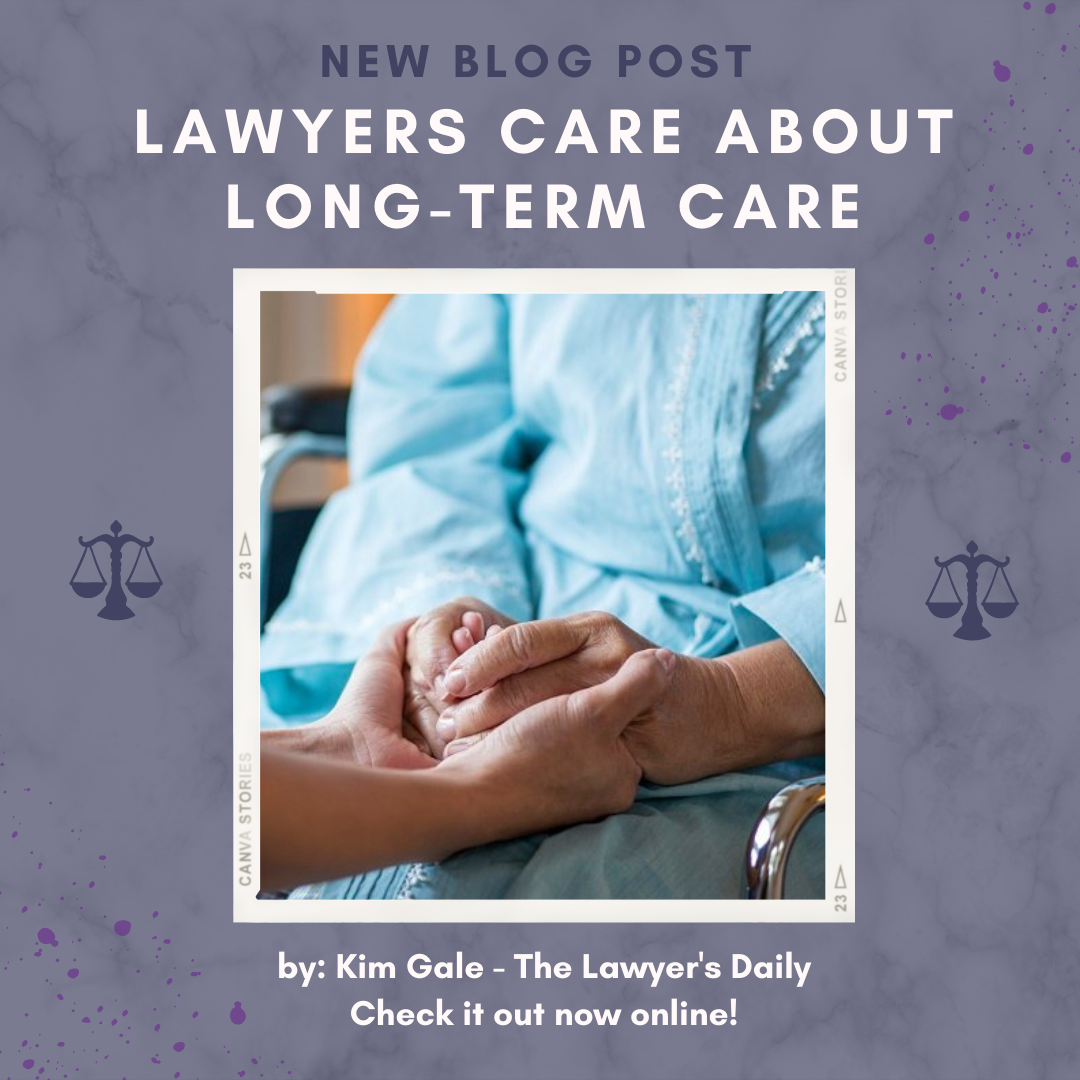
Lawyers Care about Long-Term Care
There has never been a time where a light has shone so brightly on long-term care homes (LTC), and it is not a pretty picture. The COVID-19 pandemic has exposed the system’s struggle to meet the most essential needs of residents. At a time where the situation is going from desperate to dire, the Ontario Bar Association’s Elder Law Section has established a COVID-19 Working Group (Working Group) to closely examine the important legal issues facing vulnerable older Ontarians through the pandemic.
As one of the newest additions to the OBA, the Elder Law section was established in 2017 with a goal of furthering the interests of older adults and the legal practitioners who serve them. With a particular focus on the situation in LTC, the objectives of the Working Group include advocating for improvements to laws and regulations impacting LTC to better protect their vulnerable populations. It is time to better this system.
It is widely recognized that there are issues with regulation, supervision and accountability which directly impact the well-being of residents in LTC. These issues, while not new, have been thrust into the spotlight by the pandemic. Lawyers practising in the emerging field of elder law have a critical role to play by sharing the frontline experience of the bar and assisting government in identifying practical and useful legislative and regulatory reform to respond to the impacts of the pandemic on the older population, particularly those in LTC.
In July, the Elder Law section delivered a letter to the minister of long-term care and minister of seniors and accessibility, advocating for immediate implementation of the following recommendations:
- Ensuring compliance with the Residents’ Bill of Rights;
- Resuming unannounced annual Resident Quality Inspectors in all LTCs;
- Safeguarding residents’ right to give informed consent or refusal to treatment and the delivery of personal assistance services;
- Accelerating the completion of the LTC rebuild program; and
- Ensuring sufficient life safety measures are installed in LTCs.
We are looking forward to hosting a panel discussion on Dec. 9, 2020, on Safety in Long-Term Care: Making Sense of the Gillese Report and Government Response, and welcoming Ontario Justice Eileen Gillese herself as one of our presenters. Our work on a submission to the Long-Term Care COVID-19 Commission (the commission) also continues.
The issues plaguing LTC are wide-ranging and include:
- There is evidence of overcrowding, understaffing, shortage of personal protective equipment (PPEs), outdated facilities, poor regulation and lack of job security and funding provided by the provincial and federal government in LTC.
- The challenge with the upsurge of COVID-19 cases is that Canada and the Ministry of Long-Term Care for Ontario do not have consistent standards or policies in place for nursing homes.
- While health-care providers have an obligation to care for their patients, they are unable to do so due to untimely interventions, minimal guidance and poor procedures.
The commission’s first interim recommendations, released on Oct. 23, 2020, are aimed primarily at increasing staffing, strengthening health-care sector relationship and collaboration and improving infection prevention and control measures.
As the second wave of COVID-19 continues to surge in Ontario, we must pull together to do the work that needs to be done to protect our vulnerable senior population. This is an issue that impacts many Ontarians today, and it will affect many more people in the future. The OBA’s Elder Law COVID-19 Working Group will continue to advocate for the legal changes necessary to achieve this goal. For more information, visit oba.org/sections/elder-law.
